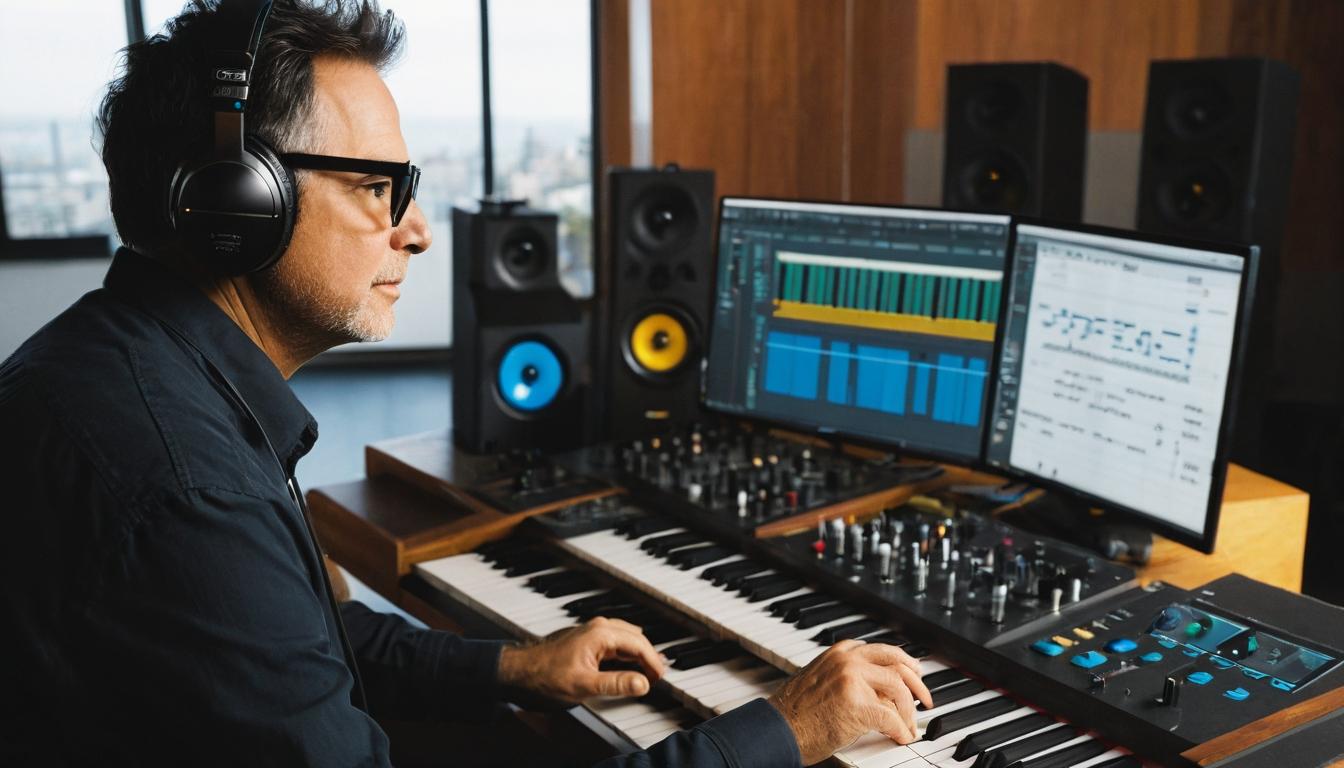In the darkened theater, as the credits roll and the audience files out, few pause to consider the invisible hand that guided their emotions through the cinematic journey. The film composer—often working in isolation, against impossible deadlines—creates the emotional architecture that supports every frame of visual storytelling. While directors and actors bask in the spotlight, these musical architects operate in the shadows, their work felt rather than seen, yet fundamentally shaping how we experience cinema.
Recent developments in the film scoring industry reveal a fascinating tension between tradition and innovation. Where once composers worked exclusively with live orchestras in prestigious recording studios, many now blend acoustic instruments with electronic elements, creating hybrid scores that bridge classical craftsmanship with modern sensibilities. This evolution isn't merely technical—it represents a fundamental shift in how stories are told through sound, with composers becoming sound designers, cultural interpreters, and emotional guides all at once.
The business of film music has undergone its own quiet revolution. Streaming platforms have created both challenges and opportunities, with composers navigating new distribution models while fighting for fair compensation. The rise of playlist culture has ironically brought film scores to broader audiences than ever before, yet many composers struggle to make a sustainable living in an industry that often undervalues their contribution to a film's success.
Behind every memorable film moment lies a complex web of creative decisions. Composers must understand character psychology, narrative pacing, and directorial vision while maintaining their own artistic voice. They work in the strange liminal space between service and authorship, answering to directors and producers while imprinting each project with their unique sonic signature. The best film music doesn't just accompany the images—it reveals subtext, foreshadows events, and creates emotional connections that dialogue alone cannot achieve.
Technology has democratized film scoring in unexpected ways. Where access to professional recording facilities was once a significant barrier, today's composers can create orchestral-quality scores from home studios using sample libraries and digital audio workstations. This accessibility has led to an explosion of diverse voices in film music, with composers from previously underrepresented backgrounds bringing fresh perspectives to cinematic storytelling.
The relationship between composer and director remains one of cinema's most fascinating creative partnerships. Like dance partners who must move in perfect synchrony while maintaining individual expression, these collaborations can produce some of the most enduring artistic achievements in film. The trust required—the director surrendering emotional control of their film, the composer understanding the vision well enough to enhance rather than overwhelm—creates a delicate balance that separates functional scores from transformative ones.
Film music criticism has emerged as its own specialized field, with dedicated publications and websites fostering deeper appreciation for the art form. Yet even within this niche community, certain types of scores receive more attention than others. Big-budget franchise films dominate conversations, while smaller independent films often feature equally innovative work that goes largely undiscussed. This imbalance affects not only how audiences perceive film music but also which composers receive opportunities to work on high-profile projects.
The future of film scoring may lie in increasingly personalized approaches. As filmmakers seek to distinguish their work in a crowded marketplace, composers are being asked to create more distinctive sonic identities for films. This trend toward musical branding—where a film's sound is as recognizable as its visual style—represents both an artistic challenge and an opportunity for composers to leave more distinctive marks on the projects they score.
Despite the challenges facing today's film composers, there's never been a more exciting time for the art form. The boundaries between genres are dissolving, technological tools are more powerful than ever, and audiences are developing more sophisticated ears for how music serves storytelling. The composers working today aren't just writing music—they're helping to define how future generations will experience and remember the films of our time.
The unsung heroes of cinema: how film composers are shaping modern storytelling

